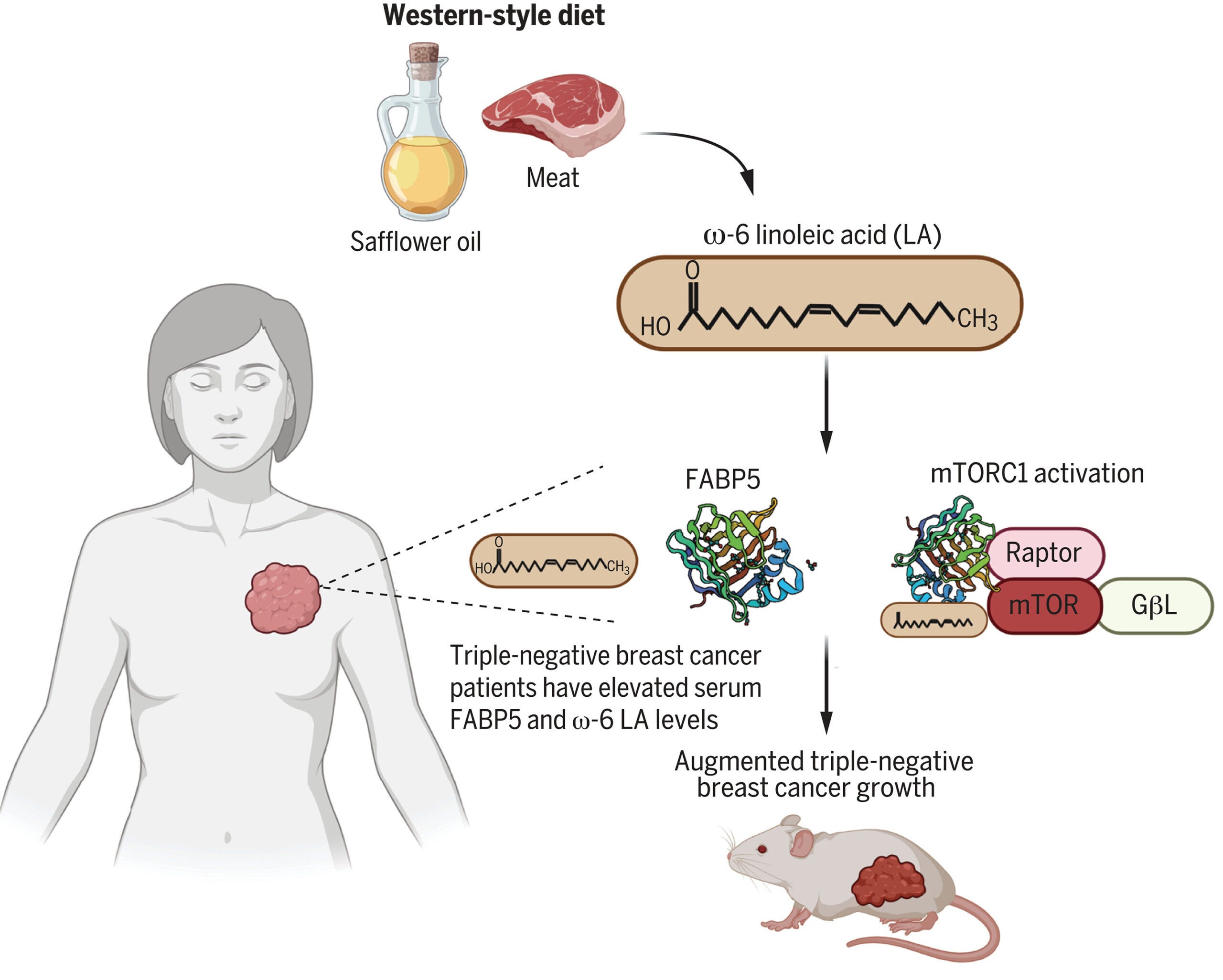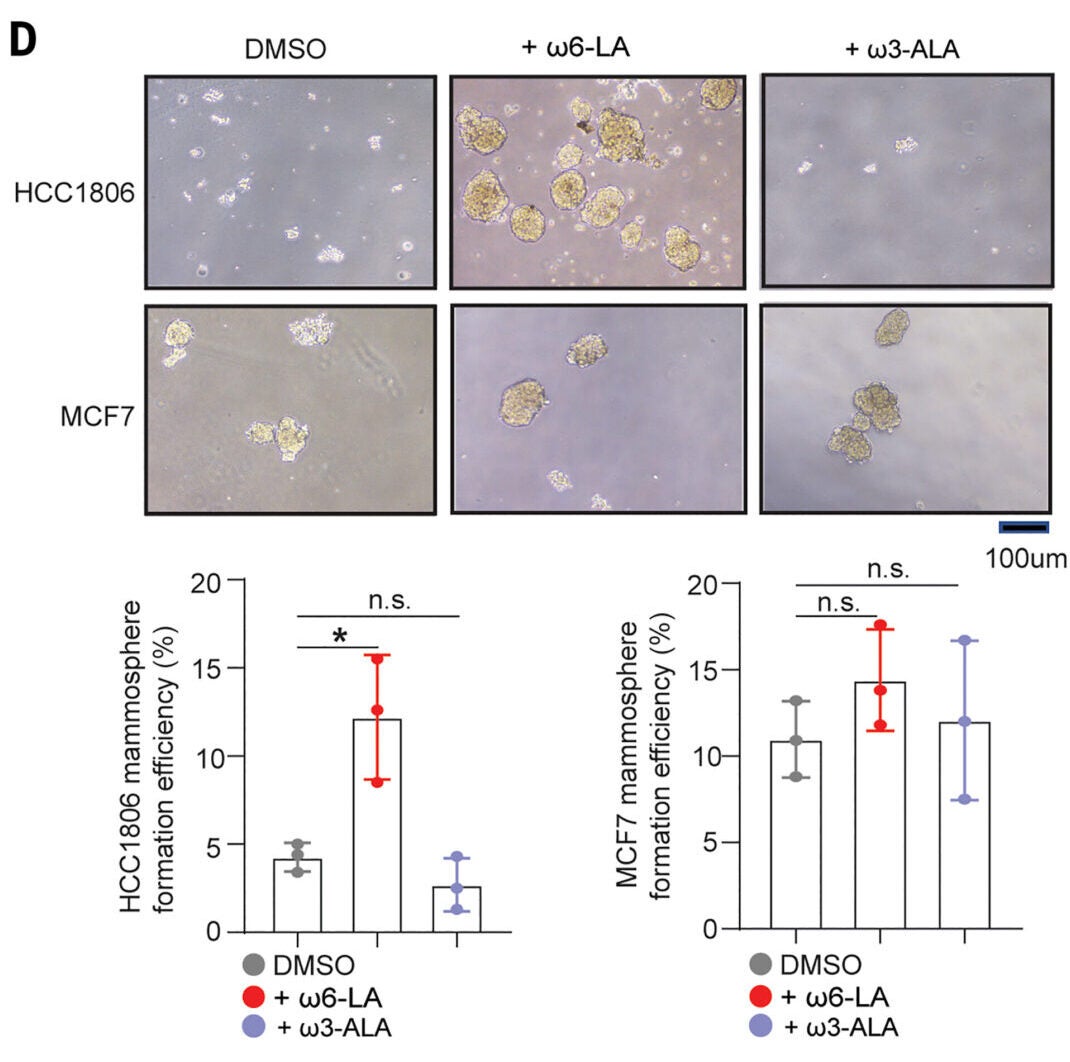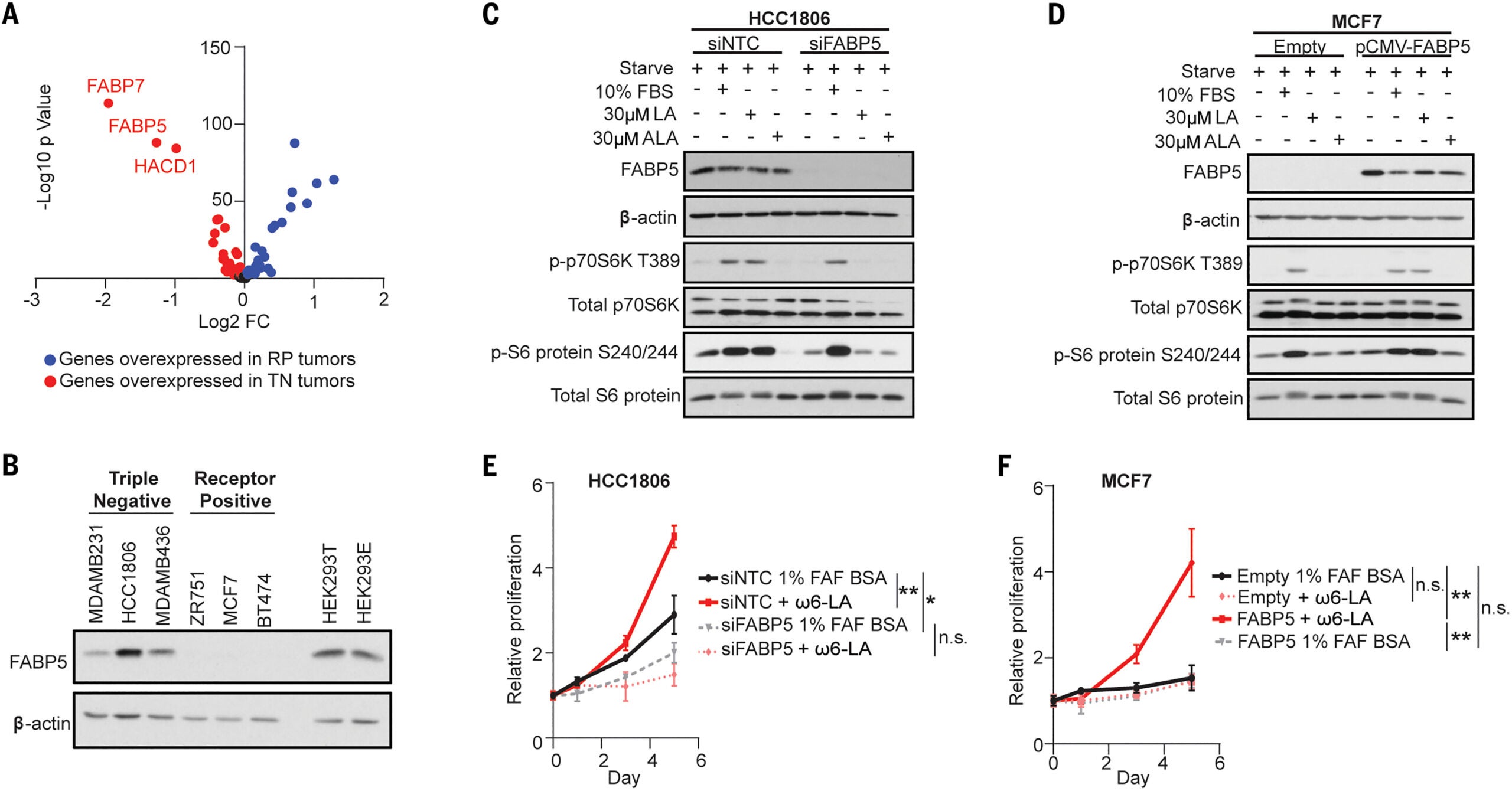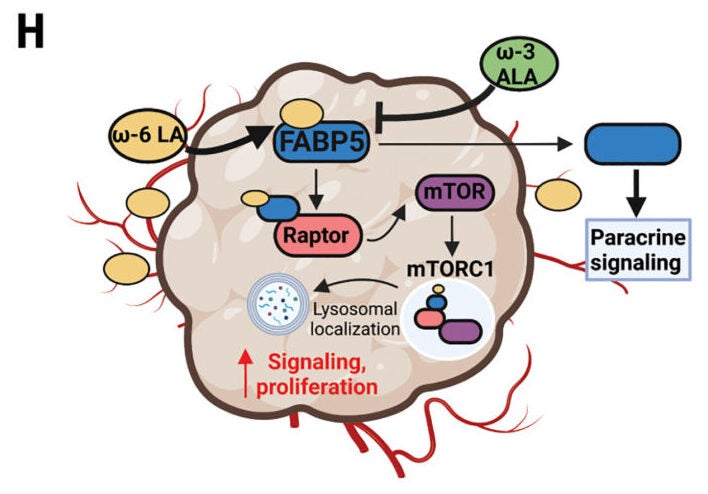Researchers are shedding new light on the link between diet and cancer growth—especially the way certain fats may fuel aggressive forms of breast cancer. A new study has found that linoleic acid, a type of fat found in eggs and soybeans and common in Western diets, can activate a key growth pathway in triple-negative breast cancer, one of the most difficult forms to treat.
All cells, including cancer cells, need to match their growth with available nutrients. A major player in this balancing act is a cellular signaling network called mTORC1. It acts like a sensor and regulator, helping cells grow when nutrients are available. This pathway is especially important in cancer biology, where abnormal growth is a hallmark. In breast cancer, mTORC1 signaling is disrupted in nearly half of all cases.
For years, researchers have focused mostly on how amino acids and glucose affect this pathway. But other nutrients, like essential fatty acids, haven’t been as deeply studied—especially when it comes to their direct effect on cancer cell behavior.

Two fatty acids stand out: omega-6 linoleic acid (LA) and omega-3 alpha-linolenic acid (ALA). Your body can’t make these on its own. You get them from food. Omega-6 fats help make compounds that drive inflammation. Omega-3s, on the other hand, tend to have calming, anti-inflammatory effects. Yet until now, researchers hadn’t clearly shown how omega-6 fats might trigger cancer growth at the molecular level.
The new findings, published in Science, focus on triple-negative breast cancer. This form lacks three key receptors—estrogen, progesterone, and HER2—that are usually targeted in treatment. Because of this, triple-negative tumors are harder to treat and more aggressive than other types.
The study shows that linoleic acid, found in seed oils like safflower and soybean oil as well as in animal products such as pork and eggs, can activate the mTORC1 pathway—but only in triple-negative breast cancer cells. The secret lies in a protein called FABP5.
Related Stories
FABP5 acts as a fatty acid transporter. In triple-negative tumors, cells make high amounts of this protein. The researchers found that linoleic acid binds to FABP5. This binding sets off a chain reaction, ultimately flipping the “on” switch for the mTORC1 pathway. As a result, the tumor cells grow faster.
“We now know that linoleic acid feeds cancer cell growth in a very specific way,” said study senior author Dr. John Blenis, the Anna-Maria and Stephen Kellen Professor of Cancer Research in the Department of Pharmacology and a member of the Sandra and Edward Meyer Cancer Center at Weill Cornell Medicine. “This discovery helps clarify the relationship between dietary fats and cancer, and sheds light on how to define which patients might benefit the most from specific nutritional recommendations in a personalized manner.”
The research team tested their findings in mice with triple-negative breast cancer. When fed a high-linoleic-acid diet, these mice showed more tumor growth. They also had more FABP5 in their tumors and higher activation of mTORC1.

The researchers then looked at blood and tumor samples from patients recently diagnosed with triple-negative breast cancer. The same pattern appeared: high levels of linoleic acid and FABP5.
These results strongly suggest that linoleic acid can promote cancer growth in this subtype—and that FABP5 is the link. This is the first time a clear biological mechanism has been shown connecting linoleic acid from food to cancer progression.
Dr. Nikos Koundouros, the study’s first author, believes this discovery could have broader implications. “There may be a broader role for FABP5-mTORC1 signaling in other cancer types and even in common chronic diseases such as obesity and diabetes,” he said.
The team also found early signs that the same fatty acid-FABP5 interaction might help fuel some types of prostate cancer.

Linoleic acid is the most common unsaturated fat in diets across many countries, especially those where processed and fried foods are popular. Since the 1950s, as seed oil use has surged, so has linoleic acid consumption. Some experts have long questioned whether this trend might be linked to rising cancer rates.
Dozens of studies have tried to answer whether omega-6 fats like linoleic acid cause cancer. But the results have been mixed and inconclusive. The problem was that most studies looked only at general patterns, not the biological reasons behind them.
This new research changes that. By finding a direct mechanism—one that only applies to a certain cancer subtype—it brings clarity. It shows that diet and disease might be more connected than we thought, but only under specific conditions.
Triple-negative breast cancer makes up about 10-15% of all breast cancer cases. It tends to affect younger people and has fewer treatment options. Knowing that a common dietary fat may speed up its growth is a vital step in crafting better care plans.

The discovery could pave the way for more personalized nutrition advice for cancer patients. If a patient’s tumor has high levels of FABP5, cutting back on foods rich in linoleic acid might help slow the cancer’s growth. This approach wouldn’t replace treatment, but it could support it.
FABP5 might also become a useful biomarker. Doctors could test for it in new patients to decide who might benefit from dietary changes or even drugs that block this pathway.
“There is a real opportunity here to tailor nutrition in a smarter way,” Dr. Blenis said. “We’ve gone beyond population-level guesses and into the biology of each patient’s disease.”
The team is now exploring whether blocking FABP5 or the mTORC1 pathway could lead to new cancer drugs. They’re also testing how this pathway behaves in other illnesses, like obesity and diabetes, which also involve altered metabolism and nutrient sensing.

This study changes how we think about fats in food and their role in disease. For years, health experts debated whether omega-6 fats were harmful. Now there’s clear proof that, under certain conditions, one of these fats can help cancer grow.
The discovery offers hope for more precise cancer care. With better tools to track how diet affects cancer at the cellular level, doctors and patients could make more informed choices. And for triple-negative breast cancer—where new options are urgently needed—that’s a big step forward.
Note: The article above provided above by The Brighter Side of News.
Like these kind of feel good stories? Get The Brighter Side of News’ newsletter.
The post Egg and soybean consumption linked to aggressive type of cancer appeared first on The Brighter Side of News.
Leave a comment
You must be logged in to post a comment.